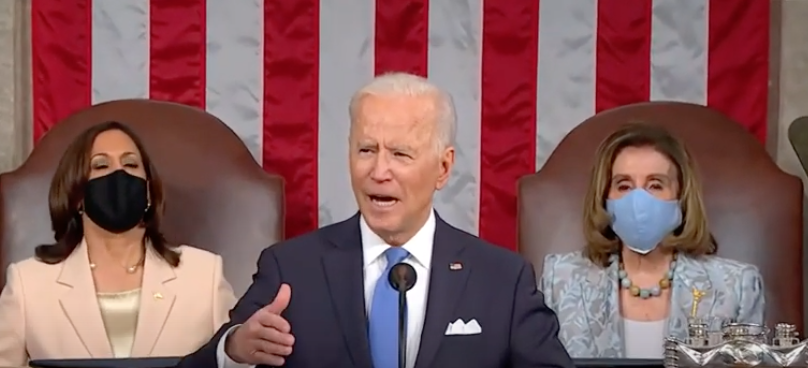A Collection of Abstract Nouns and Colloquialisms
January 20, 2021
Biden called for national unity without summoning unifying emotions or articulating unifying ideas.
It’s unfair to hold Joe Biden to the oratorical standards of Abraham Lincoln and Franklin Delano Roosevelt, no matter how much the crisis circumstances incline us to make the comparisons. “The better angels of our nature,” “fear itself” –one should not hope for let alone expect phrases like that. The closest the 46th president came, to my ear, was when he called for an end to this “uncivil war,” and his early line declaring this “democracy’s day.”
The rest of the speech was a collection of abstract nouns (“Uniting to fight the foes we face: anger, resentment, hatred, extremism, lawlessness, violence, disease, joblessness and hopelessness.”) and colloquialisms (“hear me out” “folks”). Biden recycled phrases recycled from the campaign trail (“I will be a president for all Americans” “we’ll lead, not merely by the example of our power, but by the power of our example.”) that did not seem to be repeated for emphasis so much as from a lack of parsimony. This was a pep talk to a team trailing at the half. “This is a great nation. We are good people.”
Amanda Gorman, the 22-year old poet, hit the right tone and composition of hope, frustration, and idealism much, much better.
The most interesting part of the Inaugural Address laid out –in sentence fragments, alas– the four issues Biden chose to emphasize. They revealed the opening priorities of his administration.
- “A once-in-a-century virus that silently stalks the country.”
- “A cry for racial justice, some four hundred years in the making moves us. The dream of justice for all will be deferred no longer.”
- “The cry for survival comes from the planet itself, a cry that can’t be any more desperate or any more clear.”
- “And now a rise of political extremism, white supremacy, domestic terrorism that we must confront and we will defeat.”
The prerequisite to meet these challenges, he asserted, was unity. I wonder about that as a matter of cause and effect.
Elected executives begin with appreciable yet ineffable political capital earned through their victory and supplemented by good will and the energy of fresh starts. They can spend down that capital, telling legislators “I need this now, what will it take to get your vote?” They can invest it by launching bargaining negotiations. They can flash it through symbolic gestures to mollify constituencies, speaking aspirationally and introducing bills that they know won’t go anywhere. And they can pursue its acquisition, asking legislators “What can I get for you?”
We already know about priority #1 from the pre-Inaugural policy speeches described in the previous Rhetorical Recap. We will learn soon enough about 2, 3, and 4.
But if Biden sought to augment his political capital through his Inaugural Address he is going to be disappointed. He called for national unity without summoning unifying emotions or articulating unifying ideas. He did not fire off striking turns of phrase that will lodge in audience memories. My wife and 20-year old son hit their smartphones four minutes into the speech.
Still, the 46th president’s Inaugural Address was delivered on site, ten minutes early, without incident. That assures democracy for at least another day.


